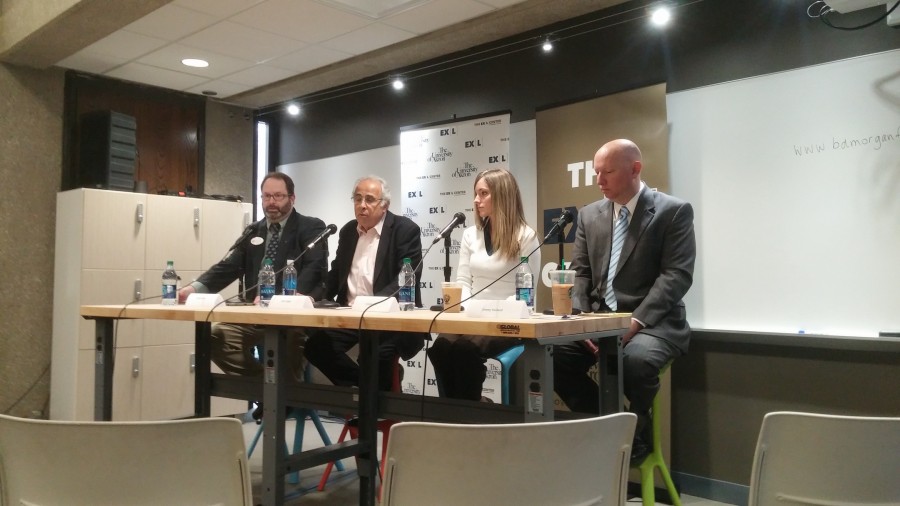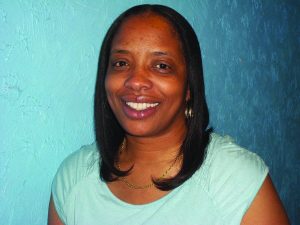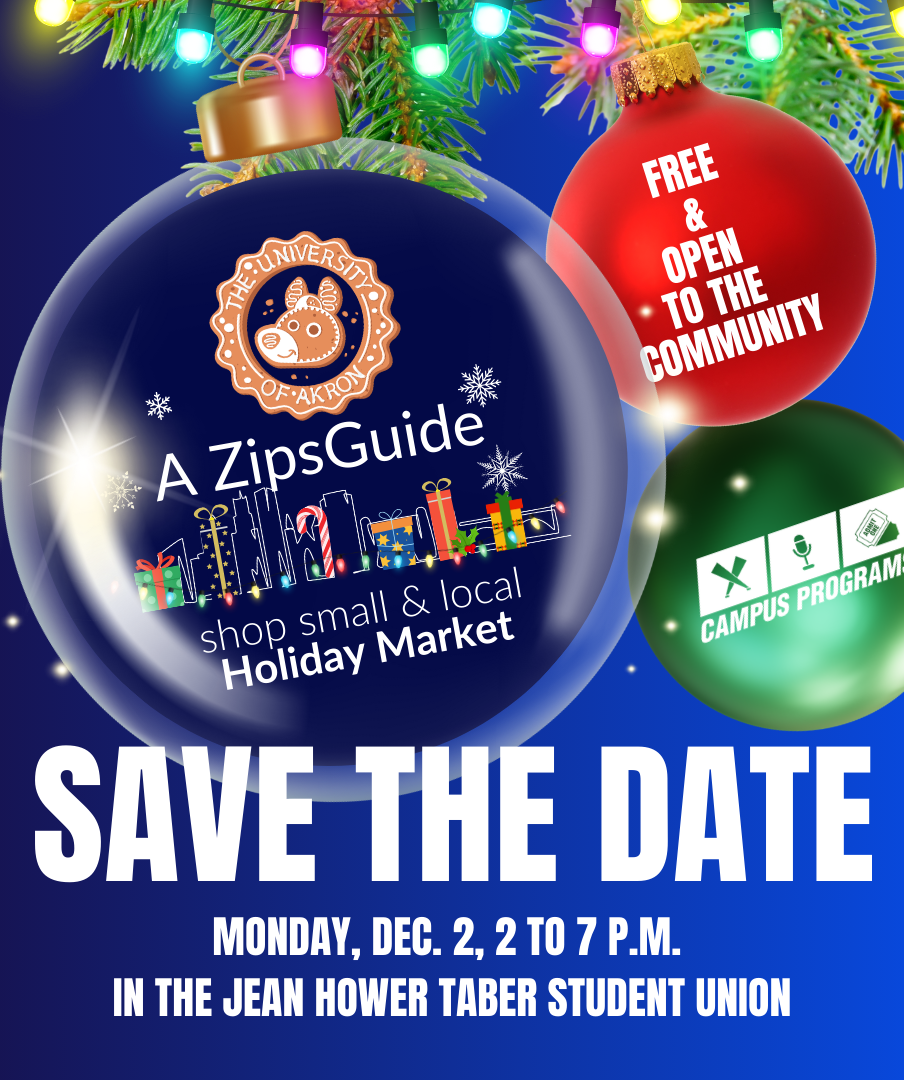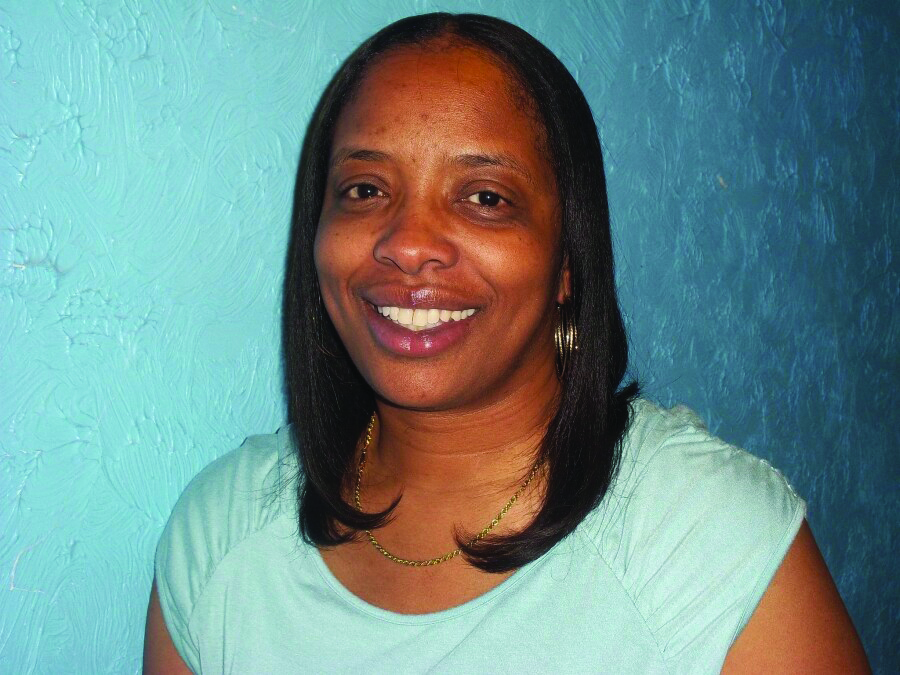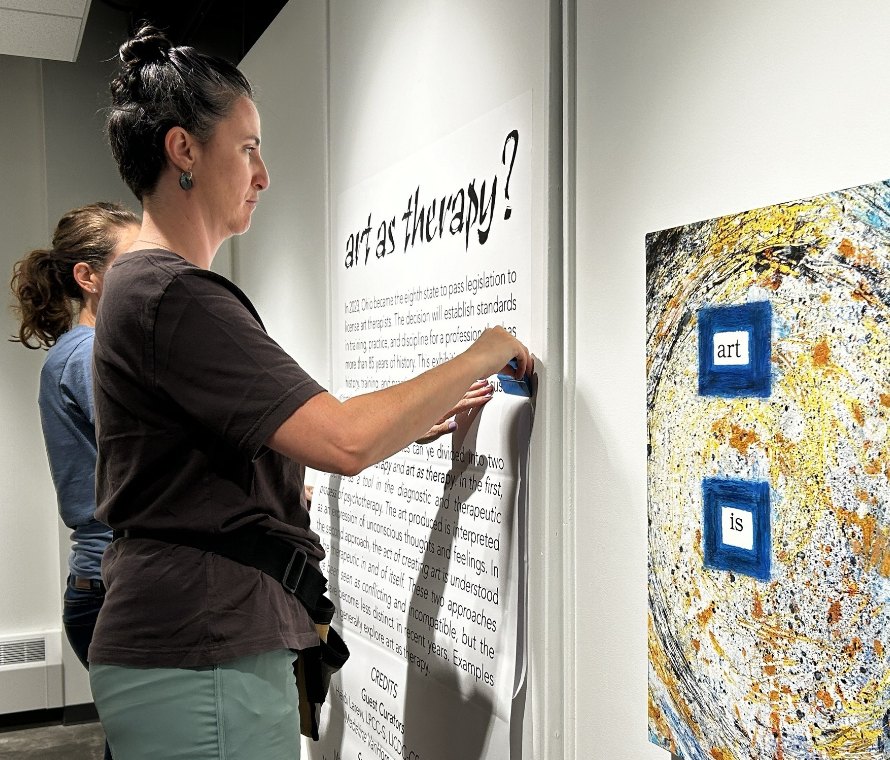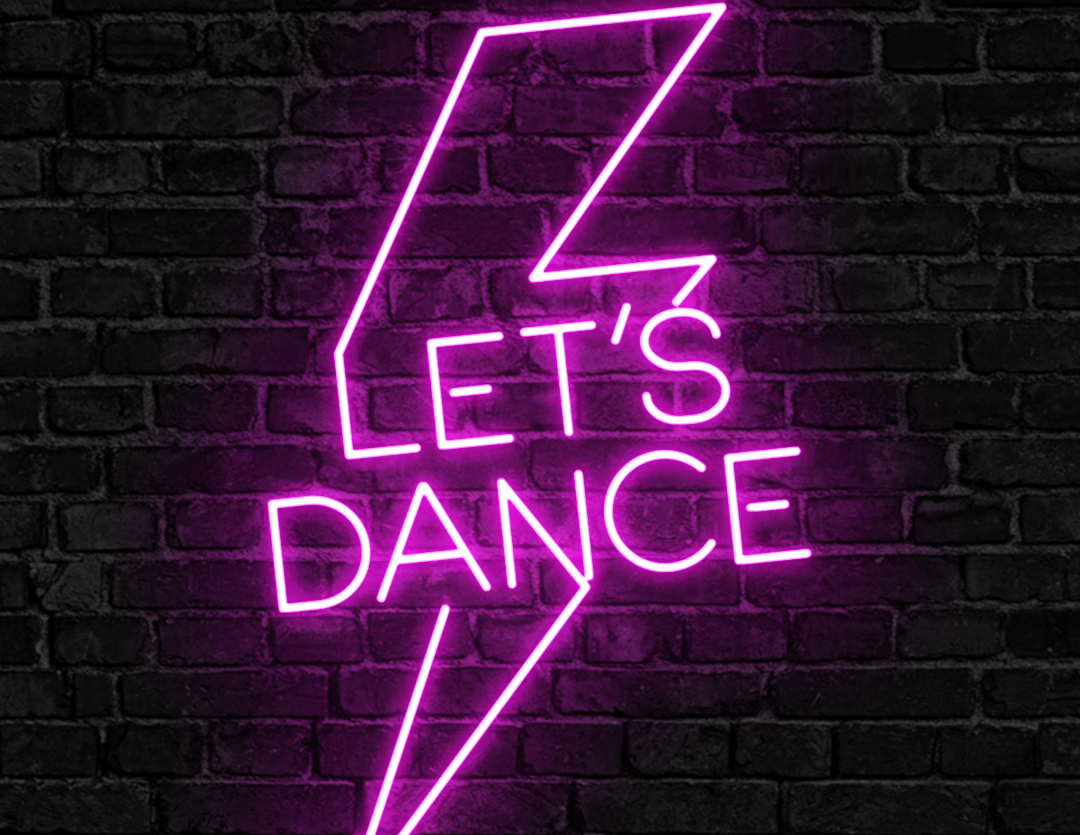EXL Launch Week day one: introductions, millennials
John Zogby, David Cohen, James Holland, and Cyndra Miller participate in the panel “The Transformative Power of the Millennial Vote in the 2016 Presidential Election.”
March 2, 2016
“The notion that you have to pick between what you love and paying the bills is absurd,” said Jeff Hoffman, co-founder of Priceline and founding director of The University of Akron’s new EXL Center.
A series of events to launch the EXL Center — short for Experiential Learning Center for Entrepreneurship & Civic Engagement — kicked off yesterday with an introduction forum in the Create/EXL room in Bierce Library, where Hoffman discussed the mission, opportunities and vision for the center.
Hoffman began with explaining why the EXL Center was started in the first place and told the story of his college experience. His parents gave him one piece of advice: get a good degree, work at a good company, with a well-paying job.
“[The Center] fundamentally [doesn’t] believe that,” Hoffman said. “Nobody’s goal in life is to get a good job, everybody’s goal is to have a good life. Your career is part of that.”
Feeling pressured, Hoffman majored in pre-law, but knew it wasn’t for him. Taking a cognitive psychology class led him to take an artificial intelligence class, which led him to change his major to computer science.
In retrospect, Hoffman wished there was someone there to help him decide what he really wanted to do much sooner. This was how the idea of EXL came about.
The goal of the EXL, made up of two centers, is for students to work with faculty and the community to chart a path that turns their visions into reality. Career/EXL center in the Student Union focuses on helping students find jobs, getting them in touch with employers, and career advising. Create/EXL in the library focuses on connecting students with resources on campus or the community to carry out their ideas.
“I am very excited to see the amount of potential from students that will be unlocked thanks to the opportunity EXL will bring to them,” said student Justin Cohen, an EXL Center student advisor. “I highly recommend for everyone to stop into the new centers to see how it can help you follow the pathway of your dreams.”
Featured Forum: First Globals
Grant Morgan
Millennials are a globalized, entrepreneurial, altruistic and perhaps entitled bunch.
So said John Zogby, a renowned American pollster, author, and speaker, at yesterday’s featured noon forum. The forum was titled “The First Global Generation and their Focus on Experience,” and in it Zogby discussed millennials, their characteristics and potential, and compared them to other age cohorts.
Zogby first made the distinction between age “groups” and age “cohorts.”
Age groups are nothing more than that — people separated into groups by the year of their births. Age cohorts, on the other hand, include the tendencies, attitudes and values of an age group, which is what Zogby cares about.
He calls millennials “first globals,” as they are not only the most diverse but the most diversity-tolerant and globalized cohort.
Each age cohort, Zogby says, usually experiences one transformative event or discovery that defines it and establishes its values, with which it will always identify. For the generations before the baby boomers, that event was WWII. For the baby boomers it was television, which brought the world — and its uncensored realities — into people’s homes and personal lives.
For first globals, it is the frenzied progression of technology and the invasion that technology makes on their lives. Because of this, according to Zogby, they have a more global, more mobile, and less chauvinistic mentality.
“There is no ‘other’ out there,” Zogby said, reproducing the archetypal millennial’s viewpoint. “‘Others’ are people just like you and me, and that makes it harder to go to war, or to be hostile toward them.”
He gave the example of 9/11, and how young people did not react to it the same way young people reacted to the Pearl Harbor attack in 1941: millennials’ response was, “how did this happen? I want to know more about the world and how this came about,” instead of an immediate rally around supposed U.S. superiority and truth, Zogby said.
Other aspects of millennials include their prosperity in the current “gig” economy, and how they meet the demand for project-based, short-term employment rather than loyal, long-term careers. The implication for this, however, is that good grades and an education no longer guarantee a student success. Young people instead must have a fluid résumé, filled with substantial experiences or employment, and must be able to “be nimble, and pivot like a basketball player,” Zogby said.
Millennials’ downsides include being less mature, more spoiled, and more focused on image and appearance compared to previous generations, according to Zogby.
Panel: The Power of the Millennial Vote
Dylan Reynolds
In the afternoon, a panel of political scientists discussed the affect the millennial generation will have on the 2016 presidential election.
The panel was called “The Transformative Power of the Millennial Vote in the 2016 Presidential Election,” and it featured internationally-renowned pollster John Zogby and UA political science professors David Cohen, James Holland and Cyndra Miller. EXL Resource Director Ian Scwarber moderated the event.
The panelists were asked questions by Schwarber and the audience, who submitted their questions using Quail, a mobile app created by a UA student.
On the topic of the millennial vote, all panelists agreed that the younger generation will have a sizable effect on the electorate — if they actually go to the polls. Statistics show that young voters overwhelmingly support the Democratic Party in this election, specifically Vermont Senator Bernie Sanders.
Their votes could be crucial in primaries and the general election; however, millennials have been voting less and less in recent years. This is due in part to a common feeling among this generation that the government has disenfranchised them.
One attendee asked the panel how they would fix this problem. Cohen replied that it would be difficult, but it would have to start at the state level and go up to the federal level.
Much of the conversation focused on Republican frontrunner Donald Trump. Zogby said that Trump’s far-right politics are dividing the Republican party, and could cause irreparable damage to it. An audience member asked if Trump’s outsider campaign might inspire millennials to vote. Cohen replied that it “will motivate millennials to vote, but not for Republicans.”
Zogby agreed, adding that aside from Ohio governor John Kasich, all of the GOP candidates are trying to “rally older white men” to vote, which he warned is a recipe for defeat in the general election.
Cohen built on this point, saying that none of the 2016 candidates inspire young people like Obama did in 2008. He pointed out that Obama had “hope and change,” but now we have “fear and anxiety,” Zogby interjected.
Though much of the discussion offered a bleak look at the presidential race, there were some positive moments. One came when Cohen pointed out that modern voters seldom consider the background of a candidate before voting for him or her. As an example, he pointed to Bernie Sanders, whose old age and Jewish heritage would have been concerns in previous elections. Also, the fact that Hillary Clinton is a woman has seldom been mentioned this time around.
In the end, the audience was largely grateful to have participated in the panel discussion. One student attendee, Riis Saunders, thought that panelists presented “really good information,” though she wished that more students came to hear it.

